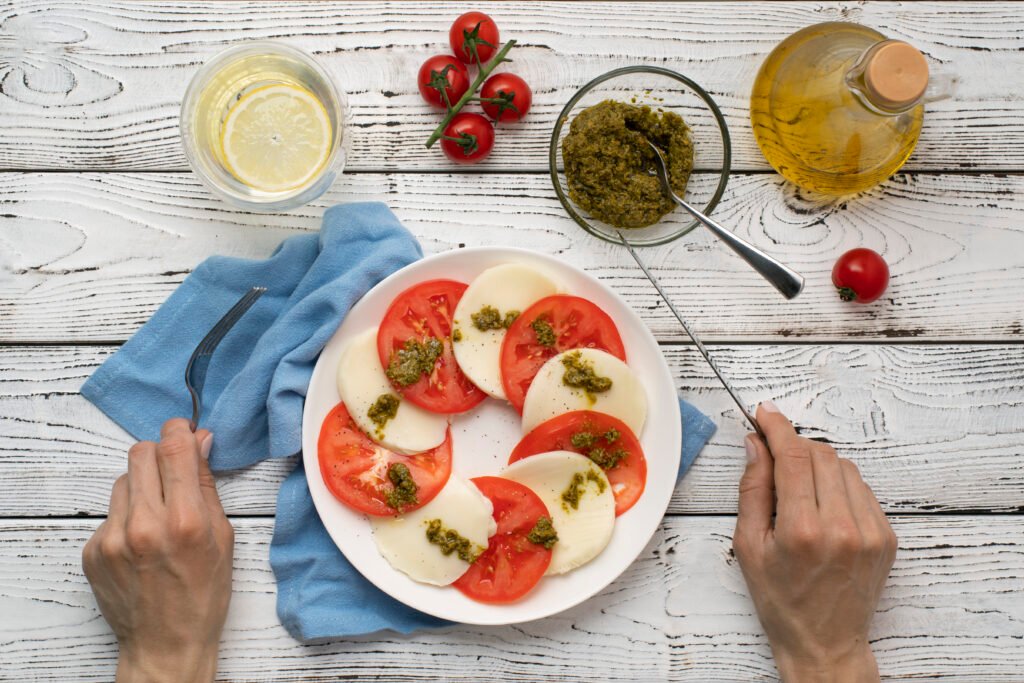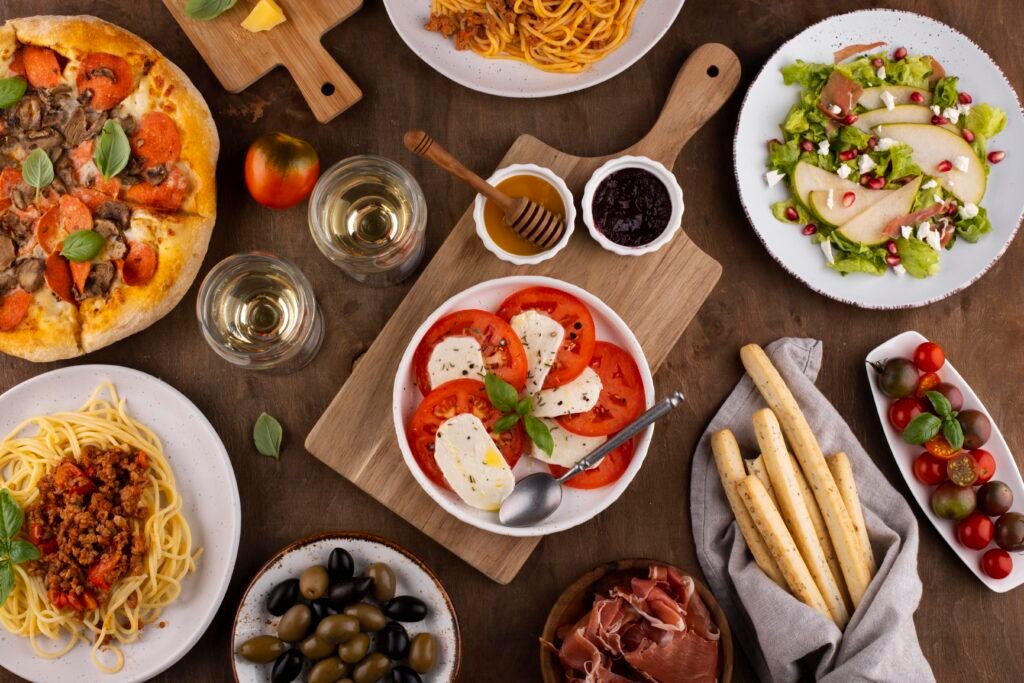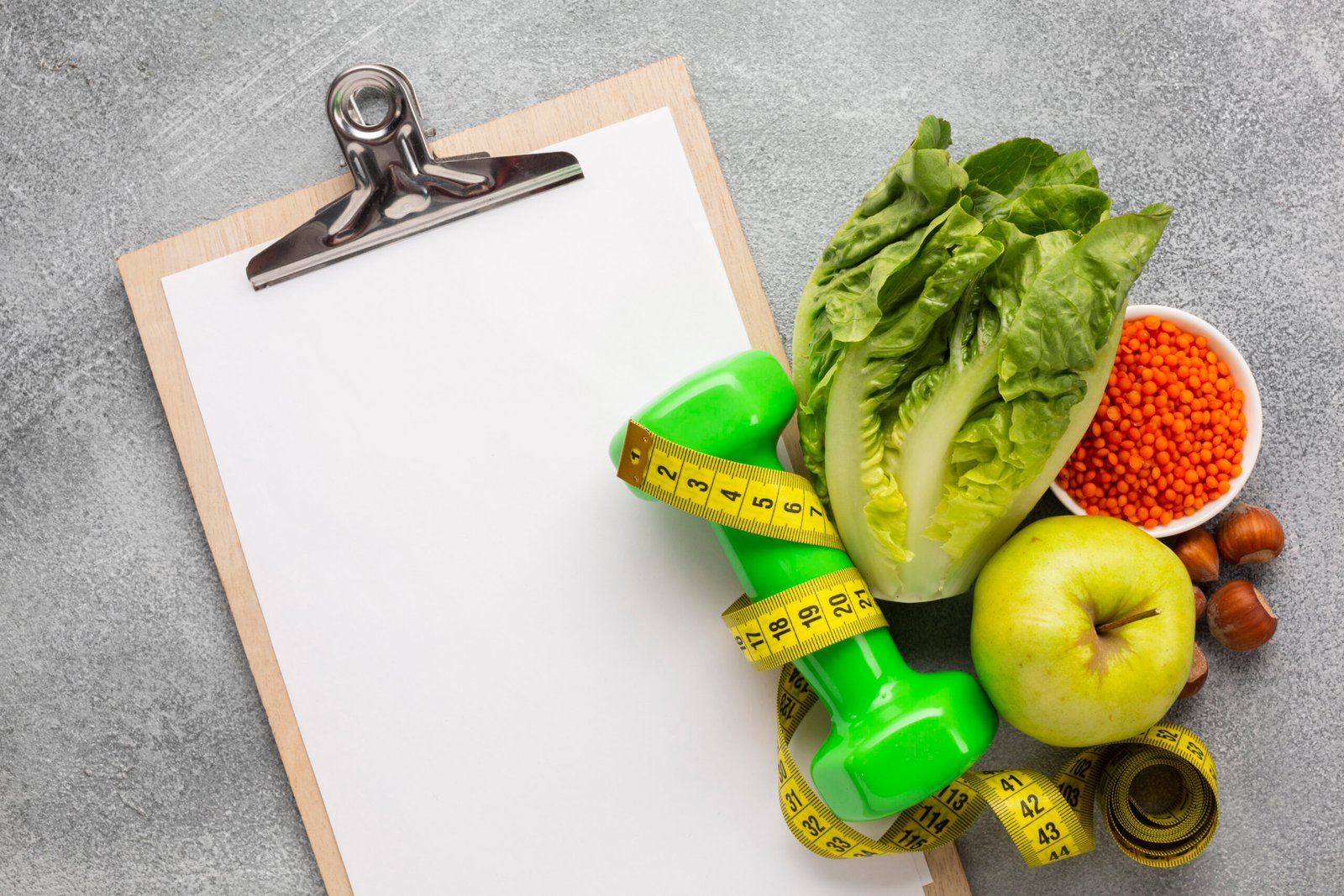10 Essential Mediterranean Diet Foods for Sustainable Weight Loss
I have to admit that the Mediterranean diet wasn’t always something I considered. Like many people, I used to jump from one fad diet to another—keto, low-carb, juice cleanse—you name it, I probably tried it.
But none of them ever felt sustainable. I felt deprived, frustrated, or just plain exhausted from trying over and over again. It wasn’t until a friend casually mentioned how the Mediterranean diet had helped her lose weight without feeling restricted that I became curious. I started researching it, and what surprised me most was how natural and enjoyable it seemed.Fresh vegetables, olive oil, fish, nuts, and even bread and pasta in moderation… it didn’t feel like a strict diet; it felt like real life. So I tried it—not to lose weight at first, but just to feel better. And guess what? Not only did I feel more energized, but the weight started coming off slowly, steadily, and without stress. Most importantly, it felt sustainable.
In this post, I’ll share the 10 essential Mediterranean diet foods that have made the biggest difference in my journey—not just for weight loss, but also for feeling great every day. Let’s dive in together!
The Mediterranean diet has gained tremendous popularity over the years, not just for its delicious flavors but also for its impressive health benefits. This diet, rooted in the traditional eating habits of countries bordering the Mediterranean Sea, has shown remarkable results in sustainable weight loss. In this comprehensive guide, we will explore ten essential foods from the Mediterranean diet that can help you shed pounds while enjoying a vibrant, diverse array of meals. Not only will you learn about these foods, but we will also delve into how they contribute to long-term health and well-being.
The Mediterranean Diet: An Overview

The Mediterranean diet emphasizes whole foods, healthy fats, and a variety of fruits and vegetables. It’s a lifestyle rather than a strict meal plan, encouraging guests to savor their meals and enjoy the company of others. Studies have shown that adopting the Mediterranean diet can lead to improved cardiovascular health, reduced inflammation, and effective weight management. According to a study published in the Journal of Nutrition, individuals following this diet experienced significant weight loss and improved metabolic health markers.
1. Extra Virgin Olive Oil: The Heart-Healthy Fat
Extra virgin olive oil is a staple in Mediterranean cuisine and is lauded for its health benefits. Packed with monounsaturated fats, it supports heart health and aids in weight management. Research indicates that substituting saturated fats with olive oil can lead to lower cholesterol levels. Incorporate this oil into your meals by drizzling it over salads or using it for roasting vegetables.
2. Leafy Greens: Nutrient Powerhouses
Leafy greens like spinach, kale, and arugula are foundational components of the Mediterranean diet. These greens are low in calories but high in fiber, which helps keep you full and satisfied. Additionally, they are rich in antioxidants and vitamins essential for overall health. You can enjoy leafy greens in salads or smoothies, or sauté them with garlic for a flavorful side dish.
3. Whole Grains: The Foundation of Energy
Whole grains such as quinoa, brown rice, and whole wheat bread are prevalent in Mediterranean eating. They provide complex carbohydrates that fuel your body while promoting satiety. These grains are also rich in fiber, which aids digestion. Look for whole-grain options in your local grocery store, and consider switching white rice for quinoa in your next meal.
4. Fish: The Lean Protein Source
Fish is another key component of the Mediterranean diet, especially fatty fish like salmon and sardines. Rich in omega-3 fatty acids, these fish support heart health and reduce inflammation. Incorporating fish into your diet can help you maintain a healthy weight while providing essential nutrients. Grill, bake, or poach fish for delicious and healthy meals.
5. Legumes: The Plant-Based Protein
Legumes, such as lentils, chickpeas, and black beans, offer a fantastic source of protein and fiber. They are low in fat and can keep you feeling full for longer, making them an excellent choice for weight loss. In Mediterranean cooking, legumes are often used in salads, soups, or as a meat substitute in various dishes.
6. Nuts and Seeds: Healthy Fats and Protein
Nuts and seeds, including almonds, walnuts, and chia seeds, are rich in healthy fats, protein, and fiber. Consuming nuts in moderation can aid in weight management and promote heart health. They make for a perfect snack when you need an energy boost throughout the day. Try adding nuts to your morning oatmeal or baking them into healthy snacks.
7. Fruits: The Natural Sweeteners
Fruits such as berries, oranges, and figs are not only delicious but also packed with vitamins, minerals, and fiber. They can satisfy your sweet cravings while providing essential nutrients. Incorporate fresh fruits into your breakfast or as a refreshing dessert option to enhance your Mediterranean diet experience.
8. Yogurt: The Probiotic Boost
Yogurt, particularly Greek yogurt, is a staple in Mediterranean diets. It is rich in protein, calcium, and probiotics, which promote gut health. Enjoy yogurt with fruits or nuts for a healthy breakfast or snack option. Studies indicate that regular consumption of yogurt can aid in weight loss and improve metabolic health.
9. Herbs and Spices: Flavor without Calories
Fresh herbs and spices are essential in Mediterranean cooking, providing flavor without added calories. Herbs like basil, oregano, and rosemary can enhance the taste of any dish while offering potential health benefits. Use them generously to season your foods and reduce the need for salt or unhealthy sauces.
10. Red Wine: In Moderation, a Heart-Healthy Choice
In Mediterranean cultures, red wine is often enjoyed with meals. It contains antioxidants, such as resveratrol, which may support heart health. While it’s important to consume alcohol in moderation, a glass of red wine can be a flavorful addition to your Mediterranean diet, especially when paired with a healthy meal.
Checklist for Incorporating Mediterranean Diet Foods
- Include extra virgin olive oil in your cooking.
- Incorporate a variety of leafy greens into salads and meals.
- Choose whole grains over refined grains.
- Opt for fish as your primary protein source at least twice a week.
- Add legumes to soups, salads, and main dishes.
- Snack on a handful of nuts instead of processed snacks.
- Enjoy fresh fruits as dessert or in smoothies.
- Use yogurt as a base for dressings or snacks.
- Season meals with herbs and spices instead of salt.
- Enjoy red wine with meals, if you drink alcohol.
Benefits of the Mediterranean Diet
Embracing the Mediterranean diet offers numerous benefits beyond weight loss. Research has shown that individuals who follow this diet tend to experience lower rates of heart disease, diabetes, and certain cancers. The emphasis on whole, natural foods promotes better mental health and cognitive function. Many participants in Mediterranean diet studies report improved mood and mental clarity, likely due to the nutrient-rich foods consumed.
Tips for Sustainable Weight Loss with the Mediterranean Diet

To maximize your weight loss efforts while enjoying the Mediterranean diet, consider the following tips:
- Plan your meals ahead of time to ensure variety and balance.
- Practice portion control by using smaller plates.
- Stay hydrated by drinking water, herbal teas, or infused water.
- Move your body regularly through activities you enjoy, such as walking, swimming, or dancing.
- Mind your eating habits; try to eat slowly and savor each bite.
⭐My Conclusions: Tips and Strategies for Success on the Mediterranean Diet

After diving into the world of the Mediterranean Diet for Weight Loss, it’s clear that this isn’t just a diet plan — it’s a true lifestyle. And the good news? It’s simple, affordable, and sustainable.
Here are my top tips, based on what I’ve learned, to help you get started (and stick to) this journey:
🥗 Keep it simple. Don’t complicate things. Start with small adjustments: swap butter for olive oil, choose whole-grain bread instead of white bread, and add more vegetables to your plate.
🐟 Include fish in your routine. If you don’t like fish, try lighter options like grilled tilapia or salmon. Having it twice a week can make a huge difference!
🥑 Don’t be afraid of good fats. Olive oil, avocado, nuts, and seeds aren’t the bad guys. They help you feel full and burn fat.
🍇 Fruits are your allies. Whenever you feel like having something sweet, choose fresh fruits, such as strawberries, grapes, figs or dates.
🥙 Cook more at home. This connects you with food and allows you to make more conscious choices.
🍷If you are going to drink wine, do so in moderation and always with your meals. (And if you don’t want to, that’s okay — it’s not mandatory!).
🚶♀️ Move your body. Walking, dancing, climbing stairs… movement is life! And this is part of the Mediterranean lifestyle.
🕯️ Eat slowly and enjoy the moment. The Mediterranean diet is about pleasure, connection and well-being — not about restrictions.
See more articles:
5 Proven Strategies for Sustainable Weight Loss You Can Start Now
8 Mindful Eating Techniques That Support Sustainable Weight Loss
FAQs about the Mediterranean Diet
1. Can I lose weight on the Mediterranean diet?
Yes, the Mediterranean diet is effective for weight loss due to its focus on whole foods, healthy fats, and balanced meals.
2. Is the Mediterranean diet suitable for everyone?
Generally, yes! It is adaptable for various dietary preferences, including vegetarian and gluten-free options.
3. How much olive oil should I consume daily?
A standard serving of olive oil is about 1-2 tablespoons per day, but this can vary depending on your dietary needs.
4. Are there any foods to avoid on the Mediterranean diet?
While the Mediterranean diet doesn’t restrict foods, it’s advised to limit processed foods, added sugars, and trans fats.
5. How can I make the Mediterranean diet a lifestyle change?
Start by incorporating Mediterranean foods into your meals gradually, focusing on a plant-based diet and enjoying meals with family and friends.
6. Is red wine necessary in the Mediterranean diet?
No, while red wine is a traditional element, it is not necessary. You can enjoy the diet without it.
7. How long will it take to see results with this diet?
Results vary by individual, but many people notice changes in energy levels and weight within a few weeks of adopting the diet.
Conclusion
The Mediterranean diet offers a sustainable and enjoyable way to lose weight and improve your overall health. By incorporating these ten essential foods into your meals, you can create a delicious and nutritious lifestyle that is both satisfying and beneficial. Remember that weight loss is a journey, and the Mediterranean way encourages a balanced approach that fosters long-term success. Explore these foods, try new recipes, and enjoy the flavors of the Mediterranean while taking a step towards healthier living.
Start your Mediterranean journey today by making small dietary changes, and watch how it transforms your health and wellness in the long run. Embrace the power of the Mediterranean diet! For more resources and recipes, check out our other articles on healthy eating and weight loss strategies.
NOTES:
The Mediterranean Diet is much more than a meal plan — it is a lifestyle that prioritizes health, well-being and balance. This article presents the 10 essential foods of this diet, including olive oil, fish, whole grains, legumes, vegetables, fruits, nuts, yogurt, herbs and, optionally, red wine. All of these foods are rich in nutrients, antioxidants and healthy fats that promote sustainable weight loss and protect against heart disease, diabetes and inflammation.
In addition to the foods, the article provided practical tips for transforming your diet: portion control, meal planning, physical activity and valuing moments at the table. Adopting the Mediterranean Diet does not mean making severe restrictions, but rather creating a rich, enjoyable and healthy eating routine.
If your goal is to lose weight in a balanced way and take care of your health in a lasting way, this diet is one of the most recommended and scientifically proven paths.
Share this article with the people you love the most and who seek to have a healthy life so they can receive these tips.














3 comments